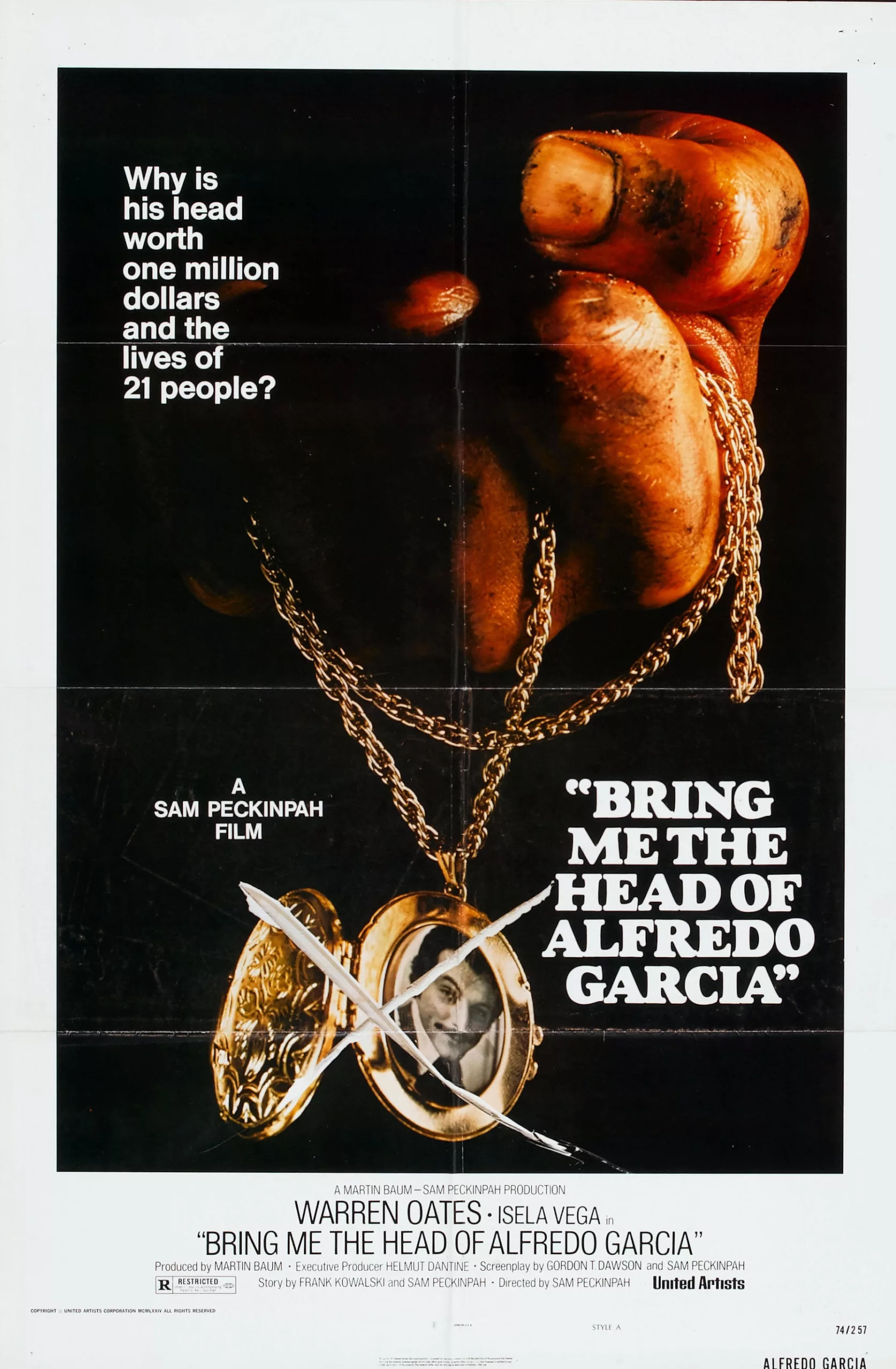Sam Peckinpah‘s “Bring Me the Head of Alfredo Garcia” is a weird, horrifying film that somehow transcends its unlikely material. It’s the story of a drunken and violent odyssey across Mexico by a dropout bartender who, if he returns Alfredo Garcia’s head, stands to be paid a million dollars. The head accompanies him in a burlap bag, tossed into the front seat of a beat-up old Ford convertible, and it gathers flies and symbolic meaning at about the same pace.
The movie is some kind of bizarre masterpiece. It’s probably not a movie that most people would like, but violence, with Peckinpah, sometimes becomes a psychic ballet. His characters don’t look for it, they don’t like it, and they negotiate it with weariness and resignation. They’re too beat up by life to get any kind of exhilaration from a fight. They’ve been in far too many fights already, and lost most of them, and the violence they encounter is just another cross to bear.
That’s the case with Bennie, the antihero of “Bring Me the Head of Alfredo Garcia.” He’s played by Warren Oates, one of that breed of movie actors who attract us, somehow, through their negative qualities. He’s like some of the characters played by Jack Nicholson or Bruce Dern; we like him because he’s suffered so much more than we ever will (we hope) that no matter what horrors he goes through, or inflicts, we still care about him.
Bennie is a bartender and plays a little piano, and he hears about the head of Alfredo Garcia from a couple of bounty hunters who pass through his saloon. They’re played, by the way, by the unlikely team of Gig Young and Robert Webber, who between them define dissipation. Garcia’s head is worth a million bucks because Garcia, it turns out, has impregnated the daughter of a rich Mexican industrialist. The millionaire is almost a caricature of macho compulsiveness; he simultaneously puts a price on the head of the culprit, and looks forward with pride to the birth of a grandson.
Bennie sees the million dollars as his ticket out of hell, and on the way to finding it he runs across Alfredo Garcia’s former lover, Elita (Isela Vega, looking as moistly erotic as anyone since young Anna Magnani). They fall in love, or something; their relationship is complicated by Bennie’s crude shyness and her own custom of being abused by men.
The most perversely interesting relationship in the movie, however, is the friendship that grows between Bennie and Alfredo’s head, once Bennie has gotten possession of it. That’s made somewhat easier by the fact that Alfredo, it turns out, is already dead. But there is a gruesome struggle over his grave, and once Bennie finally gets the head he has to kill to protect his prize. His drive across Mexico is fueled by blood and tequila, and about halfway through it we realize why Peckinpah set his movie in the present, instead of in the past; this same material wouldn’t have worked as a historical Western. The conventions of the genre would have insulated us from the impact of what happens. There would have been horses and watering holes and clichés. Instead, we get unforgettable scenes of Warren Oates with that grisly burlap bag and the bottle next to him in the front seat, and the nakedness of his greed is inescapable.
Somewhere along the way Oates, as Bennie, makes a compact with the prize he begins to call “Al.” They both loved the same woman, they are both being destroyed by the same member of an upper class, they’re both poor bastards who never asked for their grief in life. And slowly, out of the haze of the booze and the depths of his suffering, Bennie allies himself with Al and against the slob with the money. “Bring Me the Head of Alfredo Garcia” is Sam Peckinpah making movies flat out, giving us a desperate character he clearly loves, and asking us to somehow see past the horror and the blood to the sad poem he’s trying to write about the human condition.



















